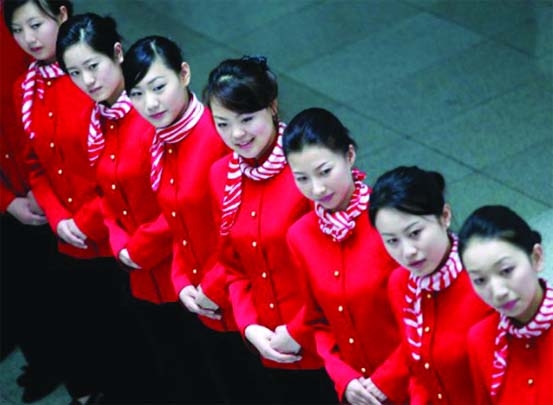
CNN :
“Patting, touching, kissing and pinching.”
As many of us probably suspect-and as a number of books about the industry have suggested-flight attendants are often the target of unwanted attention.
Now a survey puts hard numbers-and descriptions such as the one above-to the sexual harassment encountered by flight attendants while on-duty.
The Hong Kong-based Equal Opportunities Commission (EOC) announced its findings in a press release on Thursday.
Conducted in partnership with the Hong Kong Flight Attendants Alliance (HKFAA) , the survey results are based on 392 responses to 9,000 questionnaires distributed between November 2013 and January 2014 among employees of the HKFAA’s member airlines, including Cathay Pacific, Dragonair, British Airways and United Airlines.
Of survey respondents, 86% were female and 14% were male.
MORE: 20 most annoying things people do on airplanes
EOC spokesperson Mariana Law told CNN that the percentage of respondents was low likely for two reasons.
“Most HKFAA flight attendants are not based in Hong Kong, so it may be difficult for them to respond,” said Law. “Another reason is that some people may consider sexual harassment an embarrassing or difficult subject and they may not feel comfortable disclosing this information to others.”
Among the report’s findings: About 27% of the respondents (29% of women, 17% of males) reported being sexually harassed while on-duty in-flight in the last twelve months.
Sexual harassment experienced by flight attendants was mostly manifested in the form of physical contact, described as “patting, touching, kissing or pinching.”
Other forms of sexual harassment encountered included lewd jokes, “staring in a sexual way,” “showing obscene or pornographic materials” and explicit requests for sexual favors.
About 59% of the sexual harassment came from customers, about 41% from fellow workers, including senior cabin crew and cockpit members
According to the EOC, flight attendants and the airlines that employ them are particularly vulnerable to sexual harassment initiated by passengers or clients.
“There is currently no legal provision protecting providers of goods, services and facilities against sexual harassment by their customers,” said Dr. John Tse Wing-ling, who leads the EOC’s Policy and Research Committee. “In this connection, the EOC urges the (Hong Kong) Government to extend the coverage of the Sex Discrimination Ordinance to protect service providers against sexual harassment by customers, which the EOC has long recommended.”
According to the EOC, most international airlines have a policy statement on sexual harassment.

